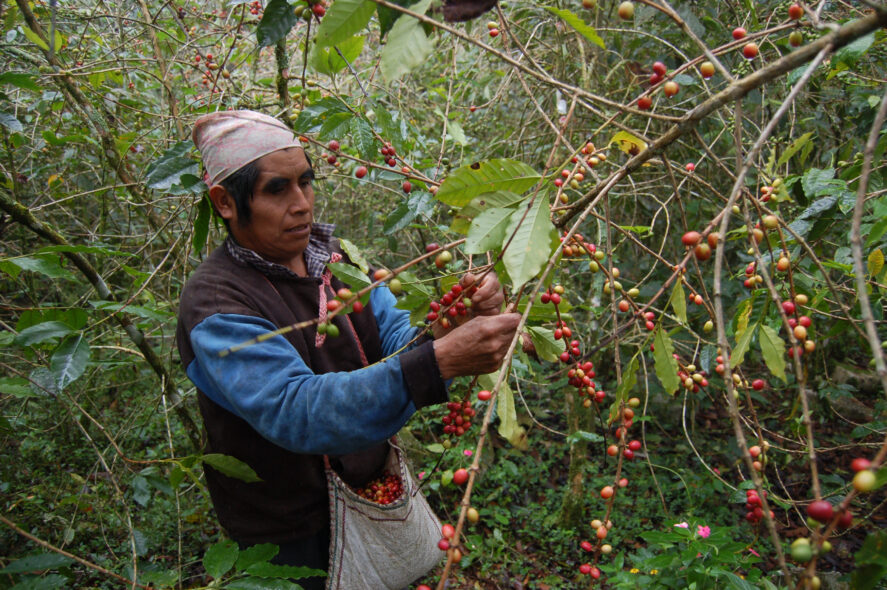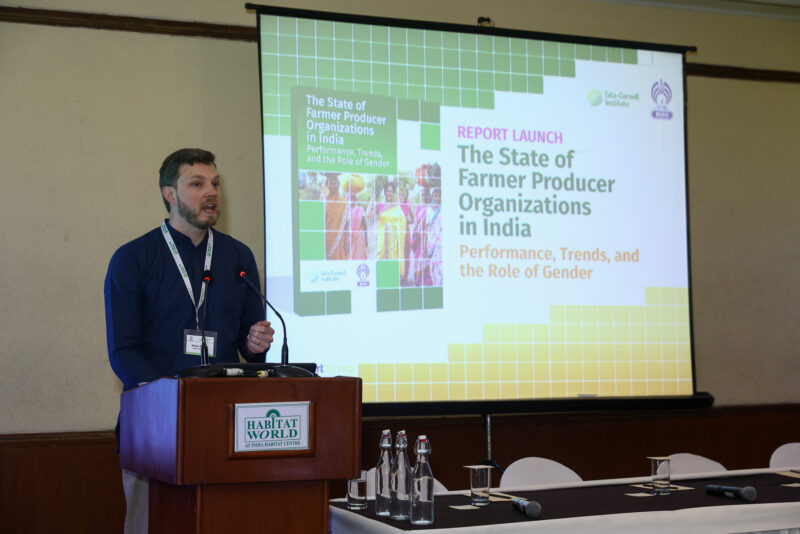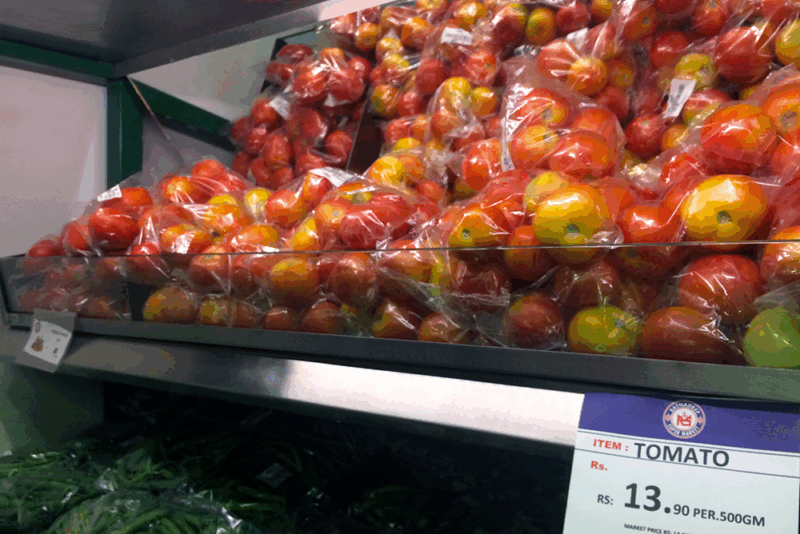A Tale of Two Aggregation Models: FPO Promotion in India and Mexico

This is the first in a series of blog posts exploring the experiences of farmer producer organizations (FPOs) and FPO promotion in India and Latin America. The next post will examine soy bean value chains and FPOs in Maharashtra, India.
Farmer producer organizations (FPOs) are the latest iteration in the long history of small farm aggregation, a process that allows smallholders to combine forces in order to commercialize their operations and boost their livelihoods. But FPOs don’t often sprout out of nowhere; promoting organizations play an important role. As part of its project on FPO-Led Small Farm Market Access Models, TCI is studying the experiences of promoting organizations in India and Latin America, highlighting important differences and similarities in FPO promotion in the two regions.
The experience of promoting organizations in each country has been vastly different.
A brief history of farm aggregation
Smallholder agricultural producers in developing countries face great disadvantages with respect to larger, commercial operations at home and other smallholder producers abroad. They generally lack access to competitive inputs, credit, market information, extension services and technology, insurance, public and private infrastructure, and legal support, ultimately hindering market access for their produce. In other words, smallholder producers in developing countries operate in imperfect markets.
Without at least partially resolving these disadvantages, smallholder producers will not be able to commercialize their operations and generate surpluses that could move them from subsistence or semi-subsistence farming toward a profit-maximizing system. How can smallholder producers minimize these market imperfections when they lack financial and technical resources?
One way that smallholders can minimize the imperfect market conditions in which they operate is by joining together with other producers that share the same incentives to carry out market-access activities. In the last century, state-sponsored cooperatives constituted an aggregation model of production commonly used in many parts of the world, such as the collectivization movements of the 1920s in China and the USSR, which involved forced or involuntary aggregation of producers.
In the late 1910s, Mexico created state-sponsored farm cooperatives, called ejidos, as a result of Mexico’s post-revolutionary war land reforms. In more recent years, beginning in the 1990s, the economies of developing countries began to open to foreign direct investment and free trade. This marks a new economic environment where aggregation models of production reemerged.
Enter the farmer producer organization
One of the primary aggregation models reemerging in this new economic environment is the FPO, which is a legal entity that groups producers to work on common objectives. By voluntarily working together through FPOs, farmers can reduce fixed and transaction costs of marketing, improve access to inputs, and increase their capacities to negotiate with input providers. Yet, despite the benefits that working under an FPO brings to individual producers, establishing and operating a successful FPO is not simple.
Smallholder FPO creation may occur with the assistance of an entity external to the producers. The entities that promote FPO creation, known as promoting organizations, can be government entities, private companies, or NGOs. Each promoting organization may have different objectives and methodologies in supporting FPOs.
To understand the different FPO promotion experiences within Mexico and India, it is prudent to look at the policy environment that facilitates the emergence of FPOs.
FPO promotion in Mexico
In Mexico, two major policy changes triggered the competitive environment of agriculture and the emergence of FPOs: the 1992 constitutional amendment allowing ejido members to have full property rights on their land and the enactment of the North America Free Trade Agreement (NAFTA) in 1994.
Originally, ejidos were groups of smallholder farmers, each with an allotted plot of land, working as a commune with no private property rights. Ejido members were landless farmers that benefited from the land reform of 1917. Granting private ownership rights to ejido members was a significant policy action, since about half of the area of Mexico is owned by ejidos. This policy change allowed ejido members to sell their land or use it as credit collateral, giving more freedom to the producer through better use of resources.
NAFTA opened the country to foreign goods and investment, and to a large and modern export market for agricultural products. This new economic environment included modern supply chains that demanded quality products and consistent supply for export and domestic markets. The General Law of Cooperative Societies of 1994 was enacted to support producers by providing a legal framework for aggregation models of production for all economic activities, including FPOs.
FPO promotion in India
The development of FPOs in India took a different path. Although there were many legal forms of organization for primary producers, in 2003, the government allowed the creation of producer companies, including farmer producer companies, under the Indian Companies Act of 1956. The producer company was established as a means to empower and improve the bargaining power, net income, and quality of life of small and marginal producers. Producer companies became a common organizational structure of any type of primary producer: agriculture, forestry, artisanal products, and other locally produced goods.
In India, the government plays a critical role in supporting the emergence of FPOs. In general, central and state government support is needed before domestic and international funding agencies and promoting organizations engage in FPO assistance. As an illustration, in 2021, the Government of India launched a new central sector scheme titled “Formation and Promotion of 10,000 Farmer Produce Organizations,” which budgeted Rs 68.65 billion to form and promote 10,000 new FPOs nationwide. International and domestic foundations also support the work of promoting organizations in promoting FPOs in India.
Differing approaches
The approach to FPO promotion between Mexico and India differs fundamentally in the degree of government involvement in funding and promoting FPOs. In Mexico, government involvement in the creation of farmer groups took place during the land reform process. Modern Mexican FPOs do not receive government support except for some fiscal benefits, whereas in India the government plays a direct role in supporting FPO promotion. Because of this, the Indian government systematically collects data on FPOs and makes them available to the public, whereas in Mexico FPO data are not collected by the government, and the publicly available data on FPOs are very limited.
Leslie Verteramo Chiu is a research economist at the Tata-Cornell Institute.
Featured image: A campesino harvests coffee beans in Puebla, Mexico. (Photo by Joseph Sorrentino/Shutterstock)





